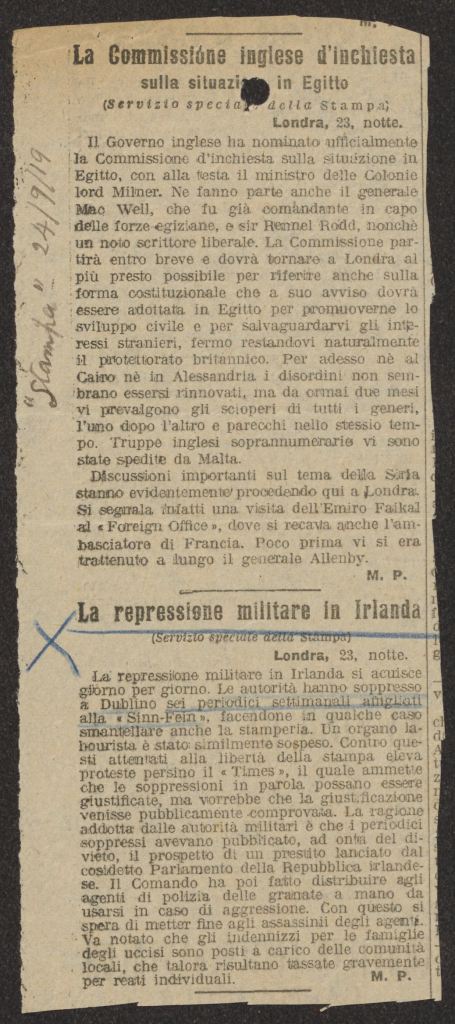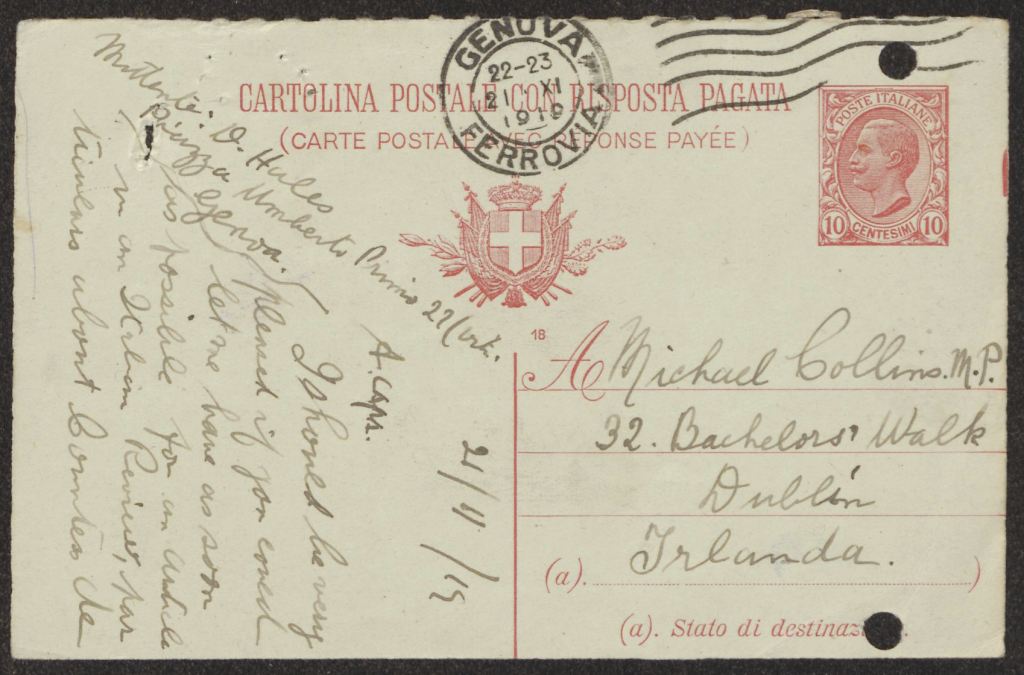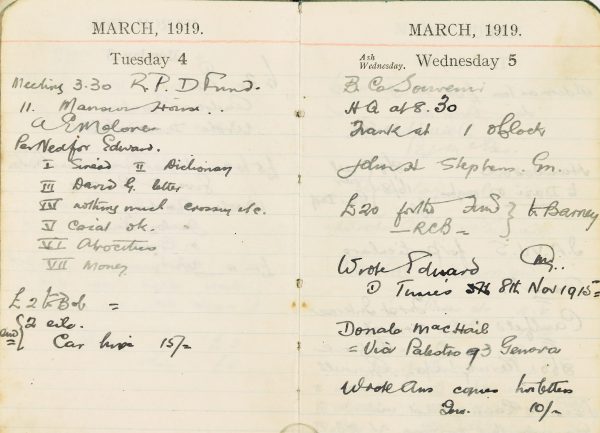Michael Collins’ working diaries from 1918 to 1922 offer a rare, behind-the-scenes look at his revolutionary life. In his 1919 diary amid the flurry of meetings, missions, and military operations, Collins made several short but telling references to Donal Hales.
- 5 March 1919 – “Donal MacHail = Via Palestro 3, Genova”
A clear reference to Hales’ address in Genoa, Italy, where he was stationed as Consular and commercial agent. - 15 May 1919 – “Received note from Don McH & replied”
This entry confirms their active communication, with Collins acknowledging receipt of a letter and his response. - 7 July 1919 – “£52 – Don Hales”
A record of funds sent to Hales, three months’ salary to support his consular work and his propaganda efforts in Italy.
These diary entries, though brief, reflect the trust Collins placed in Hales and the logistical and diplomatic support Hales provided from abroad.
Donal Hales (c1888-1969) was an Irish nationalist and diplomat who served as the consular and commercial agent for the Irish Republic in Italy from 1919 to 1922. Based in Genoa, he played a key role in promoting Irish interests abroad during the War of Independence.
Appointed by Minister Ernest Blythe, Hales was responsible for propaganda efforts in Italy, publishing pro-Irish articles in various Italian newspapers, including Voce Repubblicana, Il Cittadino, La Stampa and even Mussolini’s Il Popolo d’Italia.
Hales maintained regular contact with Collins, who sent him detailed accounts of British military actions in Ireland. Hales used these letters to inform and influence Italian public opinion:
“Michael Collins used to write to me every week recounting the British atrocities in Ireland and we made this the material of our propaganda.”
He was the brother of Seán Hales, a pro-Treaty TD who was assassinated in December 1922. Donal later wrote to the Freeman’s Journal condemning the retaliatory executions of Republican prisoners by the Free State.
Before his diplomatic role, Hales had lived in Italy since before 1914, working as a teacher. He married an Italian woman and was well integrated into Italian society, which helped his efforts to build trade and political connections between Ireland and Italy.
A collection of correspondence is held by the National Archives between Hales and Collins, which covers three years of letters sent between Italy and Ireland and provides a vivid account of Ireland’s struggle during the War of Independence. Hales regularly sent Collins clippings from the Italian press, highlighting growing European interest in Ireland’s plight. Collins, in turn, responded with vivid accounts of the escalating violence and repression at home. His letters chronicle the storming of Dáil Éireann offices, the arrest of staff, and the relentless pursuit of figures like Ernest Blythe and Countess Markievicz.
These letters, exchanged between 1919 and 1922, offer a raw and personal glimpse into the turmoil of the time.
Correspondence between Michael Collins and Donal Hales, 1919
Newspaper clipping from La Stampa ‘The military repression in Ireland’, 24 September 1919. National Archives DE/5/2/6

Letter from Michael Collins to Donal Hales, 13 November 1919. National Archives DE/5/2/64

Postcard from Donal Hales to Michael Collins and the reply from Collins, 12 December 1919. National Archives DE/5/2/6


